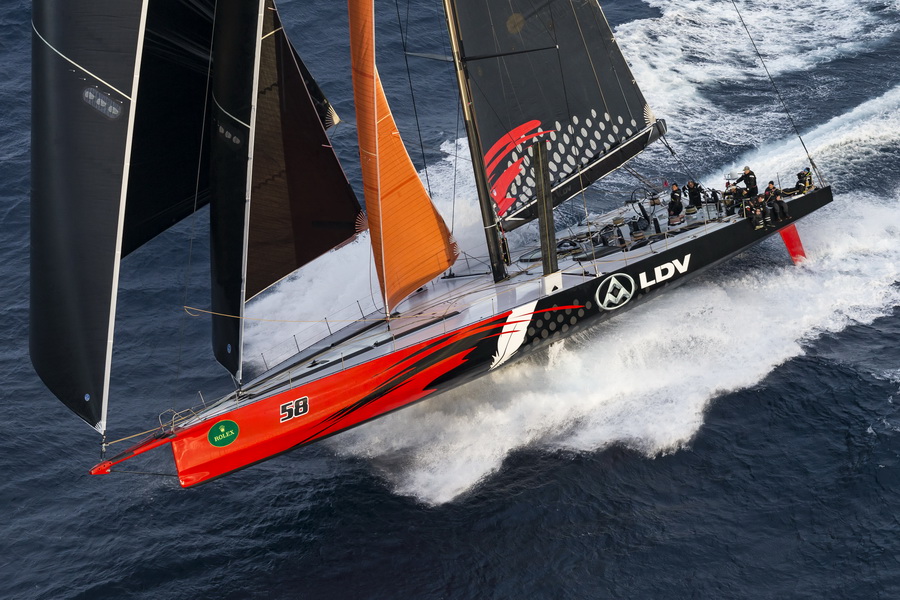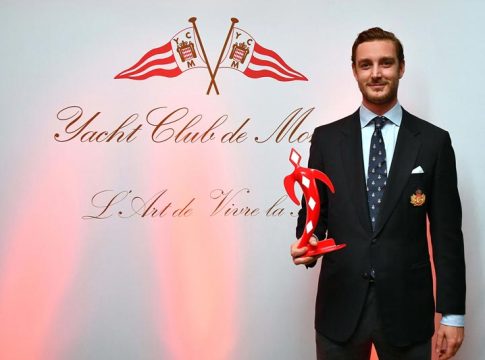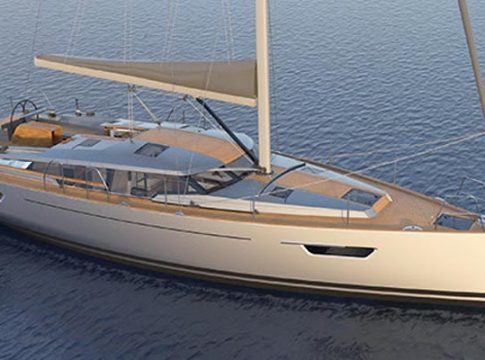The 2017 Rolex Sydney Hobart will be remembered for many things: an astonishingly quick pace, a new record and a reversal of fortune in the contest for line honours.
The race has served up a myriad of narratives that testify to the passion, commitment and pursuit of excellence typifying the participants. The overall victory of Matt Allen and the crew of Ichi Ban, is just one of those stories. In a masterful performance by the 52-footer, she finished in one day, 19 hours to beat her closest rival by 30 minutes on corrected time. In so doing, owner Matt Allen completed a lifelong quest.
When the 102-boat fleet set out from Sydney on 26 December, cheered on its way by tens of thousands of well-wishers stationed at vantage points along the shore and in hundreds of boats on Sydney’s famous harbour, the consensus was that this would be fast race offering everyone a quick ride south. The weather delivered on its promise. The first 30 boats finished the race in a little over two days, the next 50 during the following 24 hours – 30 within a frenetic hour of each other on the afternoon of the 29 December. Six yachts retired and only one is left on the water, expecting to finish early on New Year’s Day.
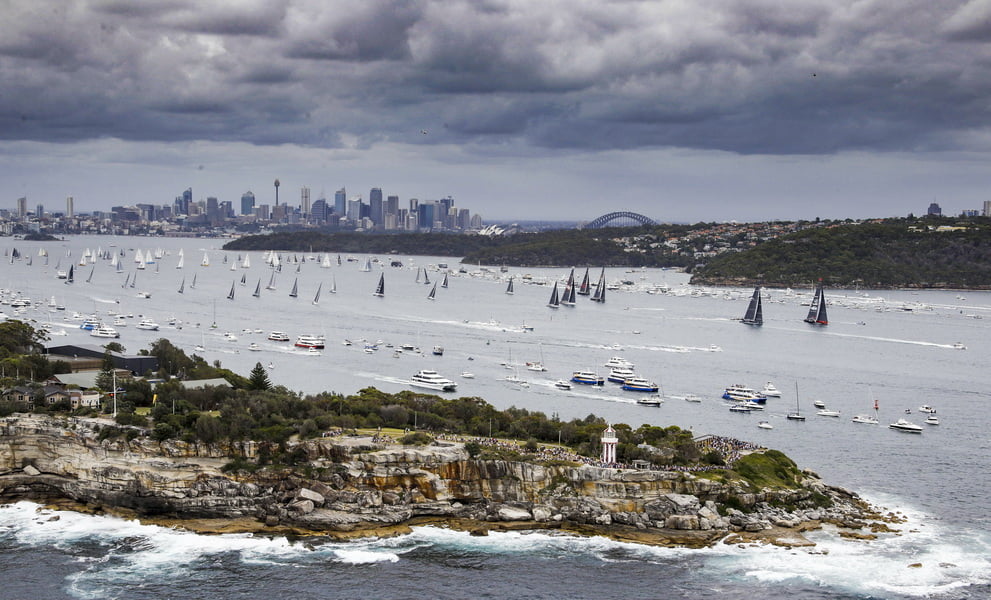
The Rolex Sydney Hobart was founded in 1945 by the Cruising Yacht Club of Australia, which continues to organize it to this day with the support of the Royal Yacht Club of Tasmania and, since 2002, in partnership with title sponsor, Rolex. It is a race that rewards preparation and tenacity. It encourages innovation. It requires careful planning and skill.
PERFECT PLANNING, PERFECT EXECUTION
In keeping with that ethos, Allen launched a new boat this year. The decision was taken virtually the day after finishing the 2016 race when, despite leading at Tasman Island, five hours of drifting on the Derwent River ended once again the long-held dream of winning this blue water classic: “About 364 days ago, I tapped Gordon [Maguire] to discuss my idea to build a new, fast TP52 hull and strengthen it for the rigors of the Rolex Sydney Hobart.” That was just the start of this year’s campaign.
For Allen, this victory is the culmination of many things: “This has been a lifetime effort. I first saw the race in 1976 and have been down here almost every year since. It is incredibly satisfying to come up with the plan, to put it all together and for it to come off. It reminds me of my first experience of winning with Lou Abrahams in 1983; to do so now as skipper is an incredible feeling. It’s every sailor’s dream to win this race.”
Like other 600 mile offshore classics, such as the Rolex Fastnet and Rolex Middle Sea Race, winning the Rolex Sydney Hobart is a serious challenge. Allen believes you have to win it three times: “on the east coast of New South Wales; coming down Bass Strait and off eastern Tasmania; and, then, across Storm Bay and up the Derwent. It’s so difficult, so challenging; you need a bit of luck to get through all those points.” Two-time winner Bob Steel goes further: “The Rolex Sydney Hobart used to be a marathon, and now it’s a sprint race …there’s a gate every 50 miles and to win you have to get to each gate first.”
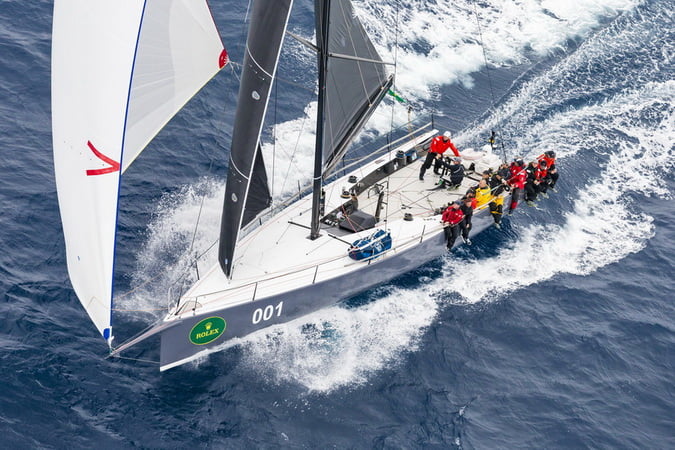
Faced with such intensity, the race can be brutal on both mind and body. Even this race, which saw some of the most spectacular downwind sailing conditions in memory. Allen’s sailing master and one of the helmsmen on Ichi Ban, Gordon Maguire, explained: “On this boat, in those conditions, the helmsman is a front man. All the crew sit behind. In a two to three metre sea state you can have more than half a ton of water coming at you at 20 knots every five or six seconds. Every single wave that hits you is a couple of hundred kilos of weight. As you plough into one, the wave comes down the deck and hits you straight in the face. You are basically driving blind and, at all the critical moments, you are being taken out. My ribs are bruised, my arms are hurting. It was the hardest driving I’ve ever done.”
It demands the question, ‘is it worth it?’ The answer is simple: “None of it matters if you are trying to win the Hobart.”
There is little doubt that, had he not won this year, Allen would have been back the next to try again. Like so many others, the race is in his DNA. A former Commodore of the CYCA, Allen has invested considerable time in making sure the legacy and traditions of the first race are maintained. His win reflects the spirit of comradeship and adventure that marks its origins: “It’s an amazing achievement. We were being pushed to the limit by some great sailing. It meant we had to push hard too, and the crew rose to the occasion. I’ve never seen a group work so hard for the boat and so hard for each other. They had so much trust in one another and their judgement.” The founding fathers would be proud.
BREAKING THE RECORD
Needless to say, the exceptional weather forecast led to talk of the race record being broken for the second time in two years. With four of the fastest 100-foot yachts in the world on the start line, each one capable of sustaining the average speed of 16.75 knots required to beat the existing benchmark of one day, 13 hours, 31 minutes given the right conditions, the fresh north-easterly predicted to stay over the course for around 48 hours could not have been better. By the morning of the second day, all four were ahead of the record pace, with LDV Comanche, in the hands of new owner Jim Cooney, leading.
With her powerful stern section, Comanche was expected to eat up the miles during the downwind sleigh ride and build a substantial lead over the three other pretenders. They, in turn, needed to press as hard as they could, looking to limit the damage. The Derwent River was widely predicted as the critical moment in the race. Which boat would master its vagaries? As the sun set and Wild Oats XI, a few miles behind at Tasman Island, caught and crept past LDV Comanche, it seemed that the prediction would come true. After being in front for the best part of 600nm, Cooney looked to have lost an extraordinary battle at the death.
[zt_video_play src=”https://youtu.be/WmmqesNWKo0″ width=”640″ height=”360″][/zt_video_play]
Then came the twist. An incident between these two goliaths before leaving Sydney Harbour had led to a claim that Wild Oats XI had infringed her rival. The International Jury adjudged the protest to be justified. Wild Oats XI was penalized an hour of added time, relegating her to second place on the water and handing Cooney and his all-star crew on LDV Comanche not only line honours for being first to finish, but a new race record of one day, 9 hours, 15 minutes and 24 seconds. To outsiders the reversal of fortune may appear harsh. An epic duel on the water had been decided by single moment early in the race. The Rolex Sydney Hobart, though, is elite level sport. Regulations, intended to maintain fairness, are the bedrock of all competition and for the good of all participants.
PASSION, COMMITMENT AND PERSEVERANCE
The Rolex Sydney Hobart is about more than simply the winners and the record-breakers. It is a contest of human spirit. For over 70 years, it has been part of the fabric of the Christmas season in Australia. Sydney revels in the departure, Hobart in the arrival. For both cities, the race is an emblem. For the race, both cities are part of the mystique. For many participants, it is compelling.
The winner, Matt Allen, was competing in his 28th race. He has some way to go to catch the leaders in this ranking. Bill Ratcliff is 81 years old. He did his first race in the early 1960s and, this year, racing on James Whittle’s Takani, he completed his 49th. “I’ve done every heavy Hobart since 1963. They don’t put me off,” he advised. “I’d like to do my 50th race and then hopefully the 75th anniversary in my own boat.” Recognising his increasing physical frailty, Ratcliff’s philosophy is simple: “The race can be hard on me now. I have a few bumps and bruises from this one. I’ll keep going though and we’ll see what comes.”
The race is evidently in the Ratcliff family’s blood. This year, Bill sailed with his daughter, Katrina, and has previously raced with his two sons, Paul and Luke. If one could bottle his accumulated knowledge, it would be a valuable tonic for first-time owners and crew. Getting to the start line of a 600-mile race is an achievement in itself, whatever the result: “Racing your own boat requires a lot of dedication to complete the paperwork, comply with the safety and equipment regulations. Most owners have day jobs and it can be tiring getting everything ready.”
Tony Ellis has been racing south since 1963. This year, on Triton, he marked his 50th race at 73 years old. He is only the second sailor to reach this milestone following Tony Cable; he shows little sign of stopping: “I just love Tasmania. The welcome we get is fantastic. The races can be hard and you never know what you are going to get when you enter. The forecast only matters in so far as the boat you are sailing on. I wouldn’t dream of coming here at this time of year any other way than by boat!”
Exemplifying the spirit that turned a cruise into a race, Ellis remains as competitive as ever. An overall winner of the Rolex Sydney Hobart in 1992, he has also won the Rolex Fastnet: “I want to do well every time. I’m always looking to win. You don’t go out there for a jolly. Look at this year, we had a brilliant start, right at the committee boat on the gun. That’s how you should look at a race like this from start to finish.”
At the final prize giving held in Hobart, Matt Allen eloquently summed up the standing of the race in the sailing world at large: “My first race was in 1980. It was a great race then, and it’s a greater race today.
[zt_video_play src=”https://youtu.be/6-1NJjkwVXo” width=”640″ height=”360″][/zt_video_play]
The 74th Rolex Sydney Hobart Yacht Race will start from Sydney Harbour at 13.00 local time, on Wednesday, 26 December 2018.



